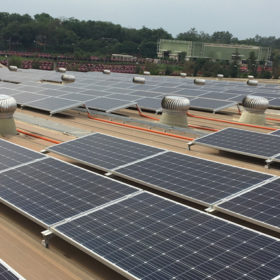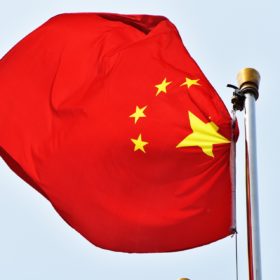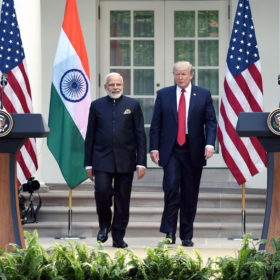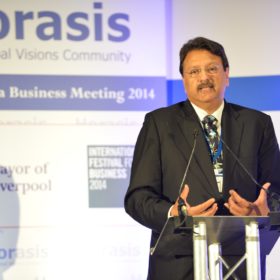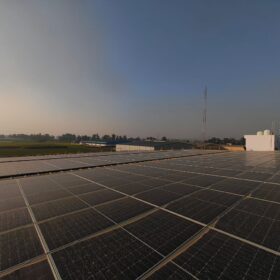India added 2.5 GW in Q1, 18.4 GW in pipeline: Bridge to India
Solar installations picked up significantly in the January-March period, with 1.89 GW of utility-scale PV projects providing 76% of the quarterly total. Rooftop PV accounted for the remaining 590 MW of new capacity additions. Looking ahead, Bridge to India expects the uptrend to continue, as the first quarter ended with a record amount of capacity in the national pipeline.
Japanese firm Mitsui invests in Mahindra Susten to support its solar expansion
The Mahindra Group cleantech firm will continue to have majority 51% stake in its subsidiary Marvel Solren, with Mitsui owning the balance. Currently, Marvel operates four distributed solar projects in India with a combined capacity of 16 MW, which the two partners aim to expand to 150 MW by 2023.
India leads the way as PV threatens coal-fired power
Falling PV panel prices led to notable year-on-year falls in the cost of developing solar plants around the world. India led the way with PV projects costing a weighted average of just $793/kW of capacity installed in 2018. Costs in China dipped to $879/kW last year, while solar projects in US and Australia cost $1,500.
Indian railways gets $750 million ADB fund for track electrification
The fund will be used for a broad modernization program that will help Indian railways to transition from dependence on fossil fuels to renewable energy.
Latest Dholera solar auction allocates 250 MW to Tata
Gujarati utility GUVNL hoped to allocate 1 GW of capacity at the solar park but ended up awarding just a quarter of that figure, with Tata Power Renewable Energy the beneficiary. A bid for 50 MW of capacity by the state-owned Gujarat Industries Power Company Ltd was rejected.
China reveals details of first 15 GW of grid parity solar
Some 168 projects will be developed across 16 provinces free from central government subsidy. The fact the average capacity of such projects has tumbled indicates Beijing’s plan to accelerate the arrival of subsidy free solar may be on track.
US-China trade war may lead to dumping of Chinese steel into India
The contraction in Chinese trade flows to the U.S. is likely to result in the dumping in India of Far Eastern electronic and electrical components as well as steel, iron, chemicals and plastic products.
Enertrag, Enel and Leclanché commission German storage project
With Leclanché due to open a module and battery pack assembly line in Gujarat alongside JV partner Exide Industries by the end of next month, the Swiss storage solutions company has been active nearer its home market.
Tamil Nadu discom halts renewable energy auctions
Tangedco’s reputation for late payments scared off developers in its latest two, failed tender exercises. The solution? Get government body SECI to hold the auctions, because everyone knows it pays on time!
India-Canada renewables fund aims for $600m cash pot
A unit of Piramal Group will be investment and project manager for the fund, prompting speculation cash will be spent on assets developed by Mytrah Energy.

